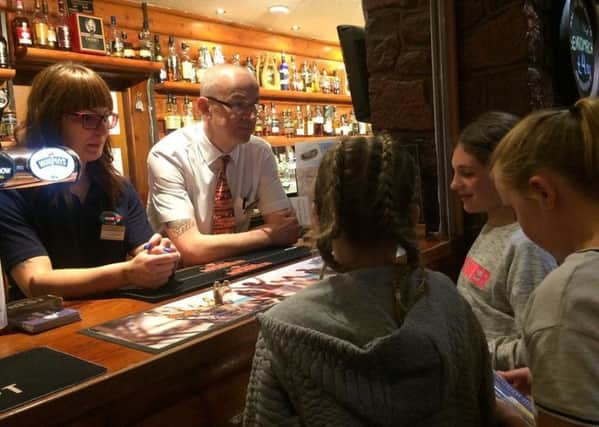Ullapool becomes first village to ban plastic straws


The last business in Ullapool has now converted to drinking straws made from other materials or have stopped offering them altogether, making all 14 cafes, bars and restaurants in the Ross-Shire village officially free of plastic straws.
The last remaining outlet, the town’s supermarket, has also agreed to stop stocking plastic straws early in 2018.
Advertisement
Hide AdAdvertisement
Hide AdThe move was brought about by pupils from the local primary school and Glasgow’s Sunnyside Primary as part of their #NaeStrawAtAw campaign.
Caillín Erin Patterson, and 11-year-old Ullapool pupil, said: “There’s no need for plastic straws.
“If you do use a straw it shouldn’t be a throwaway one. We’re killing our seas with single-use plastic and it’s just not necessary.”
The youngsters were supported in their efforts by Noel Hawkins, communities officer for the Scottish Wildlife Trust’s Living Seas campaign.
“This achievement is wholly down to pupil-power,” he said.
“The pupils went door-to-door to speak directly to businesses, and this has clearly had an impact.
“I’d like to thank everyone involved for taking action after listening to the concerns of these youngsters.
“Living on the coast means we constantly see the impact of a throwaway attitude to plastic, both on our beaches and in our seas.
“Finding plastic drinking straws during beach cleans is particularly frustrating because there alternative products are available.
Advertisement
Hide AdAdvertisement
Hide Ad!This may be a small step towards reducing the amount of plastic in our seas, but if the #NaeStrawAtAw campaign can be successful in Ullapool, it can work anywhere.
“All it takes is for people to be aware there are alternatives to plastic straws, and say no if they are offered one in a pub or a restaurant.”
Cabinet secretary for the environment Roseanna Cunningham has congratulated the Ullapool community for recognising the problem of plastic straws and taking action.
“This is an example to communities across the country of the bold steps they can take to protect our marine environment,” she said.
Together the UK and US throw away 550 million plastic straws every day.
Each one is used for an average of just 20 minutes before being binned, but takes centuries to break down.
According to assessments for the International Union for Conservation of Nature, around eight million tonnes of plastic are released into the world’s oceans every year, posing a serious threat to wildlife.
An average of 138 pieces of waste related to food and drink, including plastic straws, were found on every 100 metres of UK beaches during this year’s Great British Clean, organised by the Marine Conservation Society.
Advertisement
Hide AdAdvertisement
Hide AdIt’s estimated that one million seabirds and 100,000 turtles and marine mammals such as dolphins, whales and seals are killed by plastic marine litter every year globally.
A shocking video of a sea turtle with a straw embedded deep in its nostril went viral in 2015. Fortunately rescuers were able to remove the straw and set the creature free.
Closer to home, an ailing Cuvier’s beaked whale was euthanised on welfare grounds after it stranded on the Isle of Skye the same year. A post-mortem examination discovered 4kg of plastic bags inside its stomach.